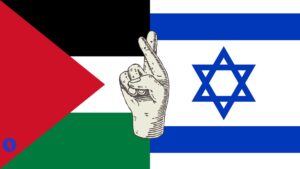We knew we were overdue for another coup, but our money was on some place like Thailand, where military takeovers drop more often than seasons of Dancing with the Stars.
And yet here we are, briefing you on a coup in East Africa’s beautiful island nation of Madagascar. So here’s what you need to know.
Intriguers won’t be entirely surprised, as we’ve been tracking the Gen Z-led demonstrations since late September (and even did a whole Gen Z briefing). As can often happen, initial anger at corruption and water/power cuts quickly morphed into a broader anti-government movement calling for President Rajoelina’s resignation.
Stay on top of your world from inside your inbox.
Subscribe for free today and receive way much more insights.
Trusted by 145,000+ subscribers
No spam. No noise. Unsubscribe any time.
Then last week we flagged he appointed a general as his prime minister, claiming it was to restore order, but it whiffed to us more of desperation to keep the military on side.
And sure enough, soldiers from Madagascar’s elite and influential CAPSAT unit then joined the demonstrators over the weekend. Two quick fun facts about CAPSAT:
- It’s a French acronym for the extremely non-elite and non-influential-sounding Personnel Administration and Technical and Administrative Services Corps, and
- Lest you laugh at them, they’re the same military unit that first installed Rajoelina after the last coup in 2009 (he later won presidential elections in 2018).
Anyways, this CAPSAT cameo is when the excrement really hit the ventilator:
- Rajoelina accused his opponents of trying to assassinate him and stage a coup
- So he disappeared, with claims a French military aircraft whisked him to safety
- Meanwhile, the opposition moved to impeach Rajoelina for bailing, so…
- Rajoelina tried dissolving parliament from hiding, but it was too late (even his own party backed the impeachment motion).
And that’s how we got to today: CAPSAT’s chief (the colonel above) is now in charge and suspending key institutions, promising to hold elections within two years. Ol’ Rajoelina? He’s gone quiet.
And the rest of the world is staying notably silent too, likely because this brand of ‘constitutional coup’ blurs the lines of legitimacy:
- Technically, the old guy got booted via impeachment
- Technically, the new guy got a supreme court invite to take over, and
- Technically, the democratic flame still flickers because the lower house continues.
Plus with major powers now competing for influence across Africa, most capitals are realistically waiting to see who emerges on top before backing anyone. If (say) the US were to condemn this as a coup, the new rulers would run to (say) China or Russia.
But here are three quick global ripples in the meantime:
- 🇫🇷 Paris
The former colonial power naturally has sway, but it also has baggage: many locals didn’t like that Rajoelina apparently held secret French citizenship (getting whisked off the island via a French military aircraft won’t have helped).
- 🇮🇳 Delhi
India wants to be top dog in the Indian Ocean and sees Madagascar as critical, with the Indian navy identifying the Mozambique Channel as a “primary area of maritime interest” a decade ago, and running a military listening post there since 2007. Delhi will be hedging its bets to ensure it’s tight with whoever holds the power.
- 📉 Markets
With ~30% of global tanker traffic passing through the Mozambique Channel, supply chain executives will be bracing for any spill-over into maritime operations.
But diving deeper into specific sectors, just recall that Madagascar single-handedly supplies the world with 80% of its vanilla, ~5% of its nickel (critical for the energy transition), and ~3% of its cobalt (EV batteries and electronics). And while single-digits might sound small, in today’s rattled world, that’s still enough to spike prices.
Intrigue’s Take
Madagascar’s political instability stems not from some ethno-religious or even ideological divide, but rather a) elite rivalry for power and resources, fuelling b) massive inequality, in turn both jointly undermining c) efforts to build credible institutions.
You can see that in the story of (ex?) President Rajoelina himself, who was a media mogul before bursting onto the political scene as the young mayor of his nation’s capital, then quickly leading protests that toppled Madagascar’s government in 2009. A couple of decades later, he ended up the very thing he said he was against (an out-of-touch elite).
And of course, constantly hovering in Madagascar’s shadows is that classic, self-fulfilling prophecy of geopolitics: an influential, politically-involved military. Try curbing that influence, and guess what CAPSAT might do next.
Sound even smarter:
- Russia renewed its 2018 military pact with Madagascar in 2022, and will inevitably be on the next flight to Antananarivo in a race for influence, though we doubt they can really offer African partners much while burning resources in Ukraine.




